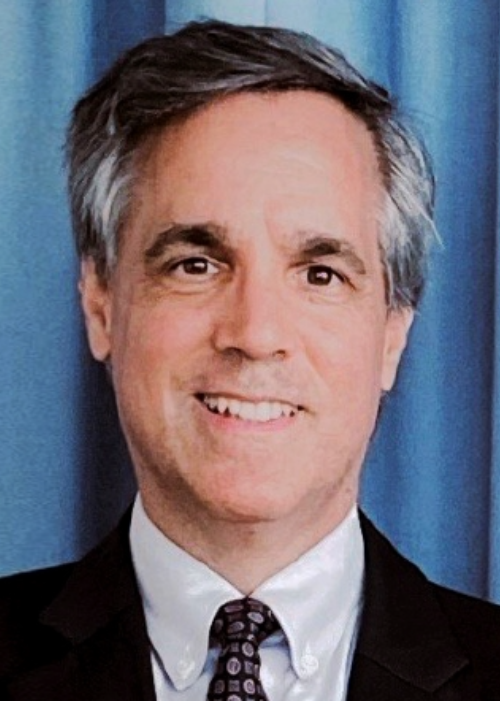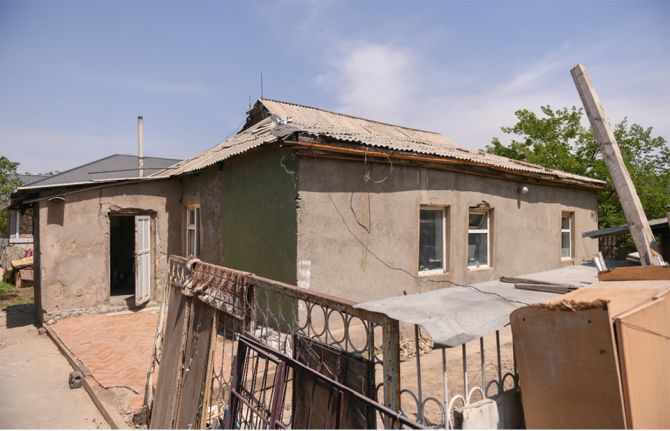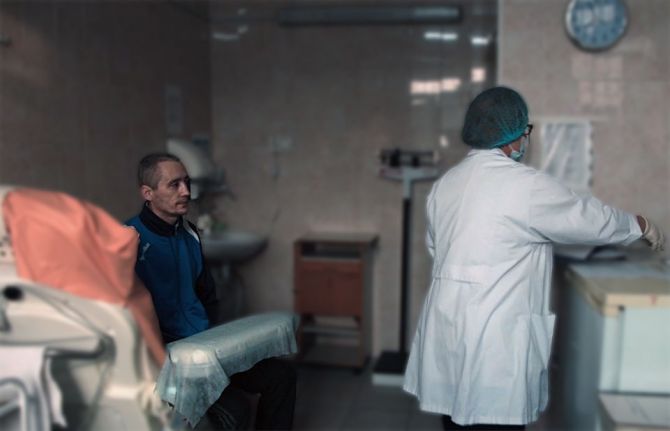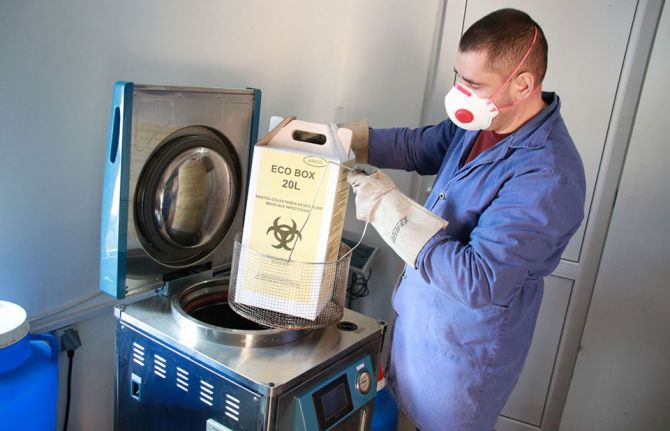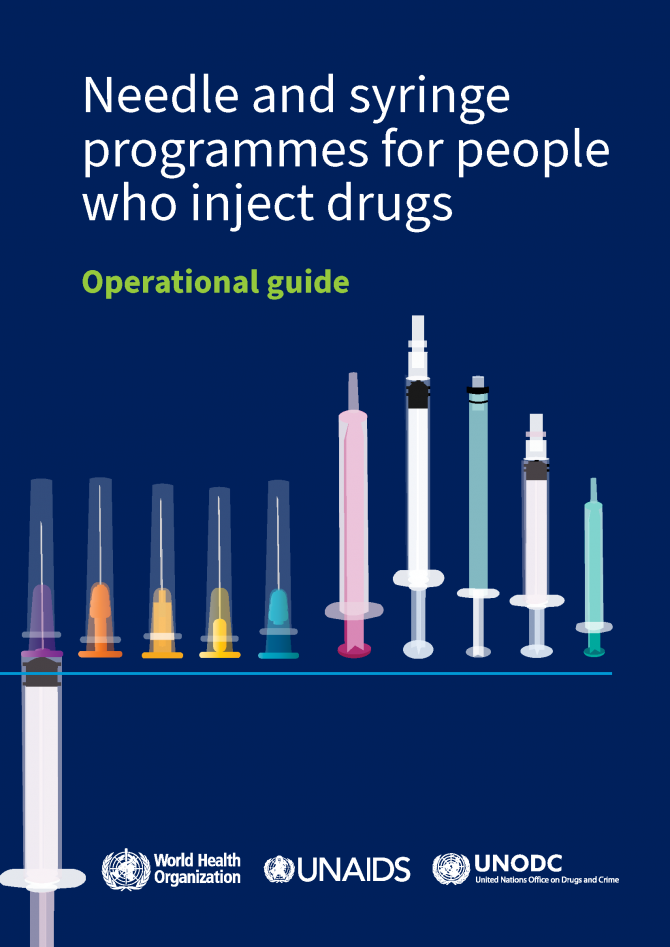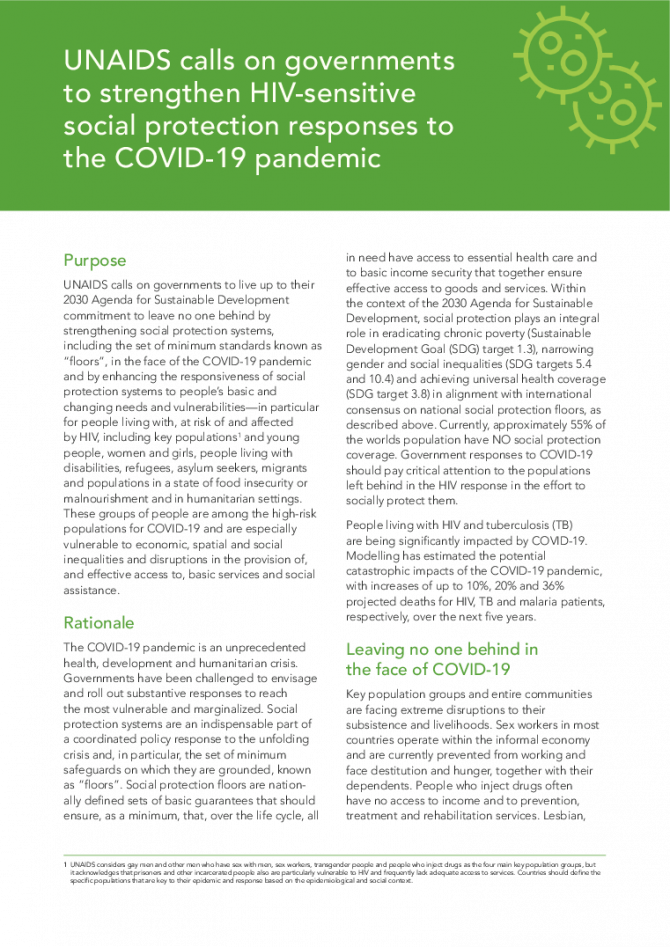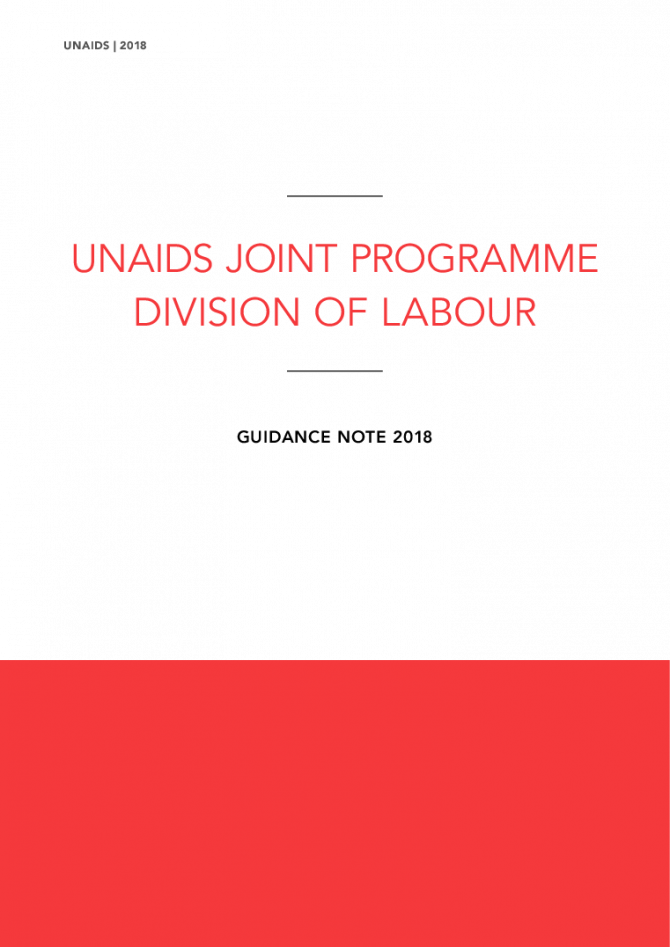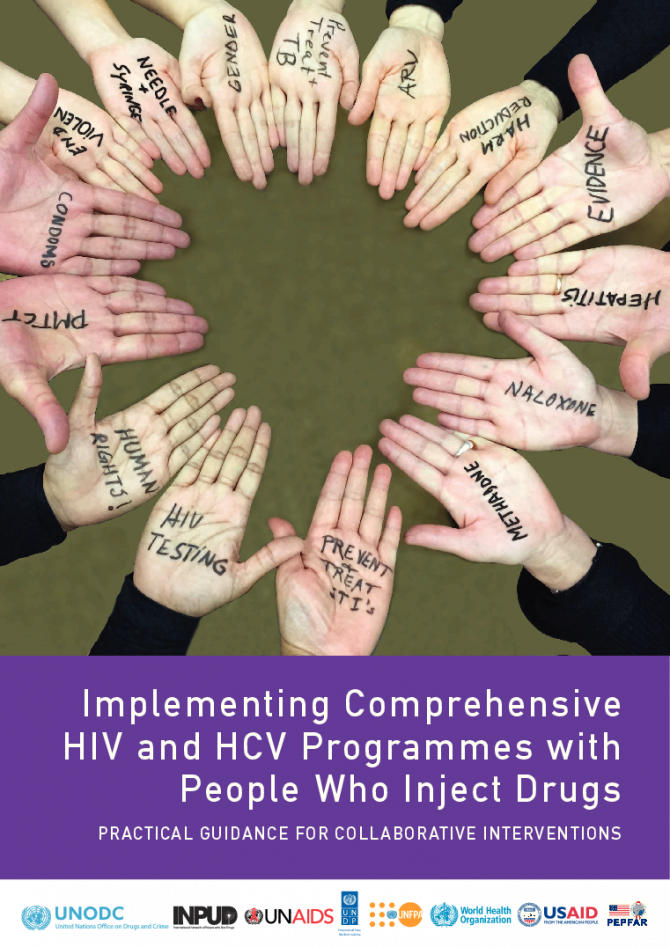
The United Nations Office on Drugs and Crime (UNODC) is committed to promoting health, justice and security by being a global leader in the response to illicit drugs, transnational organized crime and terrorism, which have emerged as major threats to individuals, communities and countries. These are high-priority issues for the United Nations and it is widely recognized that coordinated national, regional and international initiatives are needed to address them. Using its many years of experience and its technical and political credibility, UNODC is striving to ensure that such initiatives are designed and implemented in a proactive, focused and effective manner.
As a Cosponsor of UNAIDS, UNODC is the convening organization for HIV prevention, treatment, care and support among people who use drugs and people in prisons and other closed settings.
UNODC collaborates with national and international partners, including civil society and other UNAIDS Cosponsors, to support countries in developing and implementing interventions designed to guarantee that vulnerable and often left behind populations can access optimum HIV services. In addition, it strives to ensure that people who use drugs, including young people, women and people living with HIV, are meaningfully involved in programme design and implementation.
In aiming to increase access to comprehensive, evidence-informed, human rights centred HIV services for people who use drugs and people in prison settings, UNODC provides a broad range of technical assistance, including:
- Targeted advocacy to reduce stigma and discrimination and to promote gender- and age-responsive HIV approaches to drug use, criminal justice and the treatment of prisoners.
- Support to countries to develop, review, reform and implement effective legislation, policies and practices facilitating large-scale, multisectoral and evidence-informed HIV interventions for people who use drugs and people in prisons.
- Development and dissemination of normative tools and guidelines and documentation of good practices.
- Provision of assistance to develop and implement strategies and programmes that ensure equitable access to HIV services, including for women who use drugs and women in prisons and their children by addressing their special needs.
- Strengthen global strategic information on HIV and injecting drug use and people in prisons with the involvement of civil society organizations and expert networks, and enhance the technical capacity of countries in HIV monitoring and evaluation.
- Enhance partnerships, including between law enforcement and civil society organizations, in the context of drug use and HIV, and support regional prison and HIV networks, for example the African HIV in Prisons Partnership Network and the Monitoring Centre for HIV and Prisons in Latin America and the Caribbean.
To facilitate reaching the target agreed in the 2011 United Nations Political Declaration on HIV and AIDS of reducing transmission among people who inject drugs by 50% by 2015, UNODC and its partners, in 2013, selected 24 high priority countries in which it has focused its efforts for greater impact: Argentina, Belarus, Brazil, China, Egypt, India, Indonesia, Iran (Islamic Republic of), Kazakhstan, Kenya, Kyrgyzstan, Morocco, Myanmar, Nigeria, Pakistan, Philippines, Republic of Moldova, South Africa, Tajikistan, Thailand, United Republic of Tanzania, Ukraine, Uzbekistan and Viet Nam.
In preparation for the United Nations General Assembly Special Session on Drugs and the High-Level Meeting on HIV/AIDS in 2016, UNODC is organizing seven regional dialogues on drug policies and their impact on HIV to equip countries to contribute to the ongoing discussions at the national, regional and international levels.
UNODC also promotes meaningful engagement with civil society organizations (CSOs), including networks of people who use drugs. In 2013 UNODC strengthened its partnership with CSOs by establishing the UNODC–CSO Group on Drug Use and HIV.
Additional information is available unodc.org/unodc/en/hiv-aids/new/ index.html.
